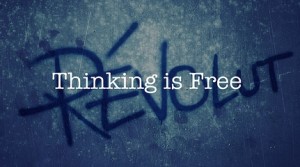 A tale of worldwide surveillance networks, international diplomacy and ‘espionage’ has gripped many of us over recent weeks. With what–we–knew–already confirmed once again as true, discussion surrounding government intrusions on personal privacy; the abuse of political power and privilege; and debate on constitutional fundamentals and universal human rights became topics of international concern.
A tale of worldwide surveillance networks, international diplomacy and ‘espionage’ has gripped many of us over recent weeks. With what–we–knew–already confirmed once again as true, discussion surrounding government intrusions on personal privacy; the abuse of political power and privilege; and debate on constitutional fundamentals and universal human rights became topics of international concern.
The dramatic travels of Edward Snowden keep us suitably enthralled, however we mustn’t allow a focus on the whistleblower (or ‘hacker’ according to some) to overshadow the impacting societal issues the saga continues to shine light upon.
The first and most obvious is that we are seeing a renegotiation of the global political landscape within the public sphere. Hands have been forced and increasingly terse statements are being made. At a fundamental level, for better or worse, the actions of Edward Snowden and the information he brought to light may prove to be the tipping point in history which eventually brings about the end of American global hegemony.
Of course, there are many who would argue that this tipping point occurred with the financial crisis – which thoroughly undermined the validity of US fiscal policy that had promulgated around the globe – but in terms of the broader media narrative an irreverence is setting in which is loudly lambasting the world’s self-professed democratic authority.
It remains to be seen the degree to which strongly worded responses from global leaders and legal challenges from campaign groups will result in policy change, but a likely pushback from EU policy-makers should shore up individual privacy rights even more strongly than before. The boundaries of privacy have been continuously shifting over recent years, and this will force intense discussion on defining where those boundaries should lie. These leaks have invigorated public opinion to a new level of energy coinciding with a growing knowledge-base that should translate directly into policy pressure at the highest levels.
With privacy-concerned countries such as Germany leading the way we could see a comprehensive shift to protect our massively growing data pools. Although a lot of the political rhetoric can be interpreted as little more than public grandstanding we will hopefully see more stringent consumer protections put in place to allow a greater degree of control over personal data and its longevity.
Few are arguing that a measured degree of surveillance isn’t a necessary and important tool in combating genuine threats of terrorism and other criminal activity. However, the lack of adequate oversight of these programmes, their universal focus of suspicion, and reliance on pre-crime social profiling must be questioned and the debate needs to occur within the public sphere in order to maintain democratic legitimacy.
Beyond these geopolitical tipping points we are seeing a wider awareness of the kinds of social contracts we have structured our lives around. We have placed a lot of trust and control into the hands of corporations whose products we rely upon (and have become addicted to) – and now must start to question whether that trust has been well-placed. The commercial, political and legal infrastructures surrounding terms such as ‘privacy’ and ‘transparency’ – concepts we hold very dearly – have effectively placed the individual citizen as the lowest priority.
 Over time the choices we have made as consumers, the policy decisions made by governments (persuaded by the agendas of powerful lobbyists), and the actions taken by corporations around the globe have created a very clear ladder of priority that the average citizen certainly finds themselves at the bottom of even with extensive data protection policies provided in areas such as the European Union.
Over time the choices we have made as consumers, the policy decisions made by governments (persuaded by the agendas of powerful lobbyists), and the actions taken by corporations around the globe have created a very clear ladder of priority that the average citizen certainly finds themselves at the bottom of even with extensive data protection policies provided in areas such as the European Union.
We are seeing now the result of that hierarchy of privacy, that sees an all-encompassing alliance between multinational corporations and governments that allows access into every part of our lives and increasingly the ability to predict behaviour and motivations.
We sell ourselves to the highest bidder, receiving utility and convenience in return for an astonishing degree of access into our personal lives, movements and thoughts. This level of access is not returned. Corporate secrecy and intellectual property is highly valued, important we are told for market competition and the economy, whilst government programmes and agencies are increasingly acting in secrecy under the guise of national security and a pretense of public interest.
The hierarchy of privacy tells us that it is not reasonable to have unfettered access, as citizens, to the workings of government due to 23 grounds for exemptions that may include ‘national security, commercial confidentiality and the protection of personal data’ (see 1.2.6) a statement that has a far wider and essentially limitless remit than the spirit of the language may imply.
Even after the largest corporate bail out in history, to the tune of trillions of dollars in public funding worldwide, the activities of many ‘private’ institutions are deemed off-limits because the right to corporate privacy trumps the public interest. But every email you write and phone call you make, the social media updates and photos you take, the apps you download and how and where you use them – all of this information is accessed, analysed and sold behind a facade of user privacy control.
We release our right to privacy with the terms and conditions we accept upon using these (very useful, socially revolutionary) services, and those who doubt the hierarchy of privacy are told time and again that those with ‘nothing to hide’ have ‘nothing to fear’. A statement which never seems to apply universally across all sectors of our modern society.
We have become the product at the bottom of this hierarchy. Without being informed our lives are being sold for profit, given real-time access without adequate due process, and data mined to a degree previously found only within the confines of the most dystopian of science fiction novels. There will be many innocent casualties of this hierarchy of privacy. There HAVE been many innocent casualties.
We have placed our own agency beneath that of the institutional structures we have created – structures which have no reality or mode of action apart from those that we, as individuals, provide when we go to work every day and give our time and energy into sustaining them. How we proceed from here will have drastic implications on the future basis of our technology-dependent world – so it’s time to question this hierarchy of privacy and ask ourselves whether it is inevitable and desirable, or merely a result of our collective complacency and lack of foresight. Is this what we want to be?
 The final thread is the alarming trend of stifling divergent political opinion whilst actively seeking to quell press freedom and protest action. This is an issue rife within the halls of corporate/political collusion, and the degree to which governments engage in practices against freedom of expression through the use of invasive surveillance tactics is cause for great concern.
The final thread is the alarming trend of stifling divergent political opinion whilst actively seeking to quell press freedom and protest action. This is an issue rife within the halls of corporate/political collusion, and the degree to which governments engage in practices against freedom of expression through the use of invasive surveillance tactics is cause for great concern.
Journalists have had phone records secretly seized and analysed; peaceful protesters victim to exploitative undercover police operations; and whistleblowers repeatedly maligned and prosecuted in what amounts to a comprehensive attack on dissenters that is escalating in severity and increasingly matching the abusive practices of oppressive regimes around the world.
Ultimately this assault on freedom of expression is an issue of political structure and an abuse of the right to govern. A right provided by the citizenry (according to our shared democratic ideals, touted as of supreme importance for multiple generations) that must be reclaimed as such.
This is a key point in Edward Snowden’s decision to leak these materials, and a large part of his public reasoning for identifying himself. We should not feel even remotely that we are ‘enemies of the state’ for questioning the governance and security measures put into place in our name when that questioning is done prudently and within the public interest. The fact that we do, that there is any discussion of ‘treason’ highlights just how far we have become removed from the basic, fundamentally important, tenet of social democracy: that the people decide on the direction society should take.
We have handed over this power to ever more abstracted entities, in most instances willingly, and our complacency has now reached the point of no return. The political, military and corporate apparatuses working behind the darkest of veils might seem insurmountable but enough focused will from the citizenry will enable shifts to occur in policy and innovation to occur in industry to circumvent this hidden infrastructure or – at the very least – illuminate us so that we can make informed choices regarding our personal, commercial, and political decisions.
We must see ourselves as personally culpable and find the motivation to take action to restore our social structures to the just and venerable mechanisms that they have the proven capacity to be. Through consumer-driven market influence, political pressure placed on elected representatives, and a continuing increase in the level and depth of public discourse there is a peaceful and constructive path away from the paranoid quagmire that we currently find ourselves sinking into.
This will not happen without citizen intervention on a massive scale, but we can be hopeful that we live in a time where we (perhaps rather ironically) have the communications infrastructure necessary to formulate true and lasting campaigns against oppression wherever it may rise. A decision to act must be made, and we must survey our options carefully and choose an alternative path thoughtfully.
 It’s important that we overcome ideological divisions to see the common ground that we stand upon – and ensure that this ground doesn’t sink beneath our feet as the progressive dreams that we fundamentally share are torn apart by those who seek to divide and conquer us all.
It’s important that we overcome ideological divisions to see the common ground that we stand upon – and ensure that this ground doesn’t sink beneath our feet as the progressive dreams that we fundamentally share are torn apart by those who seek to divide and conquer us all.




